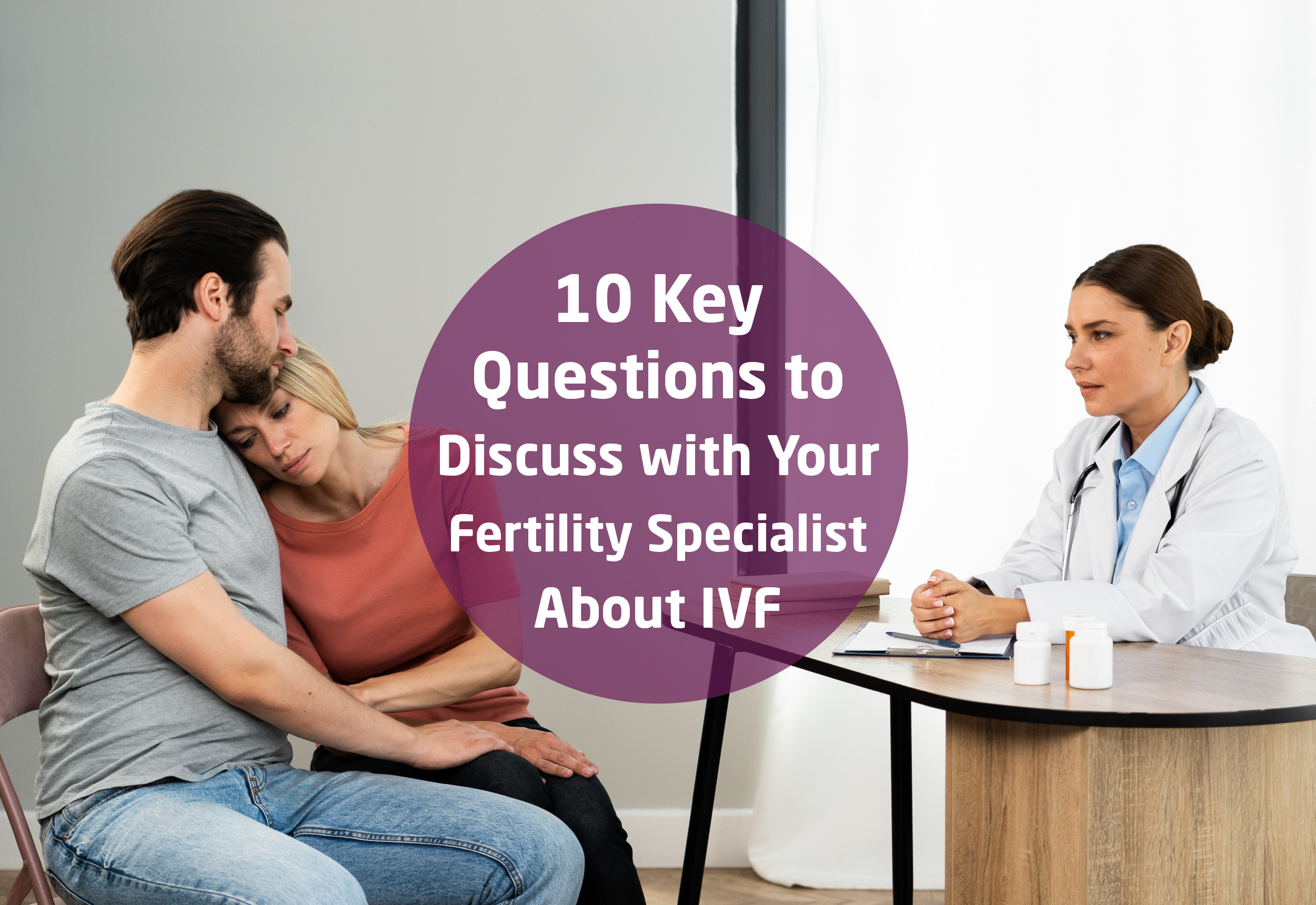For any couple, choosing to undergo IVF therapy for the first time can be difficult. In this instance, it is best to address your questions with the Best IVF Specialist in Delhi at the initial consultation.
IVF is a treatment for pregnancy, but the procedure is more complicated than it seems. It necessitates the cleanest food and lifestyle choices, the most advanced technologies, and the most skilled monitoring. Even in that case, the outcomes can be unfavorable for any unknown cause. For the best outcomes, it is agreed upon that the IVF specialist, the team, and the couples must all work much more precisely and dedicatedly.
Stress and anxiety often arise from unfamiliarity with the IVF process. However, asking the right questions can help clear up your doubts and make the journey smoother and less stressful.
Here are the 10 important questions you should discuss with your fertility specialist during the consultation:
What’s preventing us from getting pregnant?
The first and most important step in the fertility journey is diagnosis. When you visit a fertility centre, the initial process includes blood tests, scans, and reviewing your medical history and past treatments. Both you and your partner will undergo a fertility checkup so the fertility specialist can pinpoint what’s causing the infertility.
How successful is IVF treatment?
Age is a significant factor determining the success rate of in vitro fertilization. Your fertility doctor estimates the odds of success after analyzing your test results. Recognizing and treating the underlying cause of infertility is the first crucial step. This involves evaluating elements such as ovarian reserve, sperm quality, and uterine lining health.
Are there any major side effects of IVF treatment?
IVF involves medications and procedures that can lead to some side effects. You might experience discomfort from injections, mood swings, abdominal pain, or bloating from fertility drugs. There’s a small risk of ovarian hyper-stimulation syndrome (OHSS), which typically resolves in 5-10 days, though severe cases might need treatment. If you have any symptoms or concerns, your fertility clinic staff will support you.
What lifestyle changes or medicines are necessary before beginning IVF treatment?
To have higher chances of successful IVF treatment, it’s a must to improve your diet and opt for healthier lifestyle choices. Eliminate junk and excessive caffeine to switch to fresh veggies, fruits, whole grains, and high-fiber foods which are loaded with nourishing nutrients. Including healthy fats, nutritious foods are essential for boosting the body’s fertile health.
How long does it take to complete the IVF treatment process?
The fertility treatment process begins with an egg retrieval stimulation cycle that usually lasts 10-14 days, depending on how your body reacts to the medications. This phase begins with ovarian stimulation and ends with egg retrieval. After the embryos are fertilized and biopsied, it takes about two weeks to receive the genetic testing results. Once the results are out, you prepare for the embryo transfer cycle. The timing of a frozen embryo transfer (FET) can vary depending on several factors. Usually, the embryo transfer is done between days 19 and 21 of your menstrual cycle, followed by a pregnancy blood test around 10 days after implantation. Pregnancy monitoring continues until the 10-week OB ultrasound.
Will the doctor utilize my eggs in the IVF process?
Yes, most doctors utilize your eggs for IVF treatment. As the fertility treatment process starts. As your treatment begins, the fertility specialist administers injections and gives medications to increase the number of follicles recruited in the ovaries. Normally, the ovaries release one egg in a cycle. These eggs retrieved are fertilized with the sperm retrieved from the male partner. In case, the male partner’s sperm health is not healthy, doctors recommend donor sperm for the IVF treatment.
Will I experience challenges while undergoing IVF?
Generally, IVF is a safe treatment. As per a report by The Print, one among every six couples face infertility issues and almost 27.5 millions try to conceive with the help of IVF. Even though the chances of complications or serious challenges are almost nil, it is better to not neglect precautions that a fertility specialist advises. Every aspiring couple needs to understand that the positive results of IVF treatment may not come in the first attempt. Thus, being open to more than one cycle increases the chances of success.
What if the treatment does not go successful?
There is no guarantee for 100% successful IVF. Usually, couples and fertility experts make multiple attempts. There can be a possibility that pregnancy may or may not be successful in the first cycle. In such cases, there is no harm in undergoing the process once again. If you have frozen embryos from your initial cycle, those can also be used for the future treatment. The outcomes of using fresh and frozen embryos are largely similar.
What is the possibility of having twins?
IVF treatment may result in more than 1 baby sometimes. Discussing the possibility of multiple births can help the couple in many ways. They should know that there are ways to have a singleton pregnancy and IVF doesn’t always lead to twins and triplets.
How much will the IVF treatment cost me?
Organize the financial information on your initial appointment. Multiple cycles of IVF may be necessary, and the costs might mount up. It’s crucial to enquire about all costs right away. As many insurance policies don’t cover the price of IVF, find out what yours does. Never be afraid to ask questions if you need clarity.
Although starting IVF can be intimidating, many couples are finding success thanks to advances in medical science. With the right clinic and the best IVF specialist in Delhi, achieving positive results is more possible than you might think.

